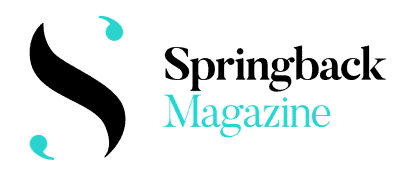Springback Academy 2024
Feature

A letter to future Springback generations
Dear future Springbacker,
If you are anything like January-me, receiving the news about being accepted into Springback Academy feels surreal. Buckle up, you are about to embark on an unparalleled dance writing journey. Spoiler alert: it might even change your life. But why am I writing this to you?
Well, I’ve been in your shoes and experienced first hand the all-too-familiar mix of excitement and nervousness it brings. As a fellow member of the 2024 class, I’m looking back on my experiences during this year’s Spring Forward Festival in the hope that it might shed some light on what’s in store for you.
Think of my letter not as a how-to-guide (every Springbacker’s adventure is unique), but as a map to help you better navigate your way.
↑ NORTH. The experience
Let’s start with the basics. Together with your colleagues and mentors, you’ll see around 20 dance shows in the span of only 3 days. Don’t let this be intimidating. Believe me, you’ll pull through and miss it when the festival ends.
As Oonagh Duckworth, director of Springback Academy, said: ‘The hardware of Springback is English, but the software really is European.’ The programme is definitely an extraordinary opportunity to connect with formidable dance writers from all over Europe. Our gang consisted of Springbackers coming from Spain, France, England, Poland, Greece, Serbia, Sweden and Romania, with special guests travelling from Hong Kong and Canada. Although meeting so many new people in such a short time can feel overwhelming, getting to know everyone happens almost effortlessly here. For us, this led to discussing different approaches to dance writing, exchanging thoughts on performances all day long and even staying up late at night reviewing together. The adrenaline rush is what kept us all going.
Joining Springback Academy means putting ‘real life’ on hold for a few days and stepping into a parallel universe – one in which eating with one hand while writing reviews with the other becomes part of your daily routine. There’s nothing like that magically liberating feeling of hitting the ‘send’ button at the end of a full day. Even though Springback is definitely a tour de force, try to savour every moment of this crazy, wonderful adventure. You’ll catch up on some sleep later.
↓ SOUTH. The shows
Always go in with an open mind. Try to stay enthusiastic and curious, even after losing count of how many performances you saw that day. Expect interdisciplinarity – the 2024 lineup revealed how dance can be born from a wide range of mediums (from martial arts, roller-skating and fashion to magic, sculpture, choir singing and video-art). Don’t try to pin down definitions of what dance is or isn’t. Instead, embrace the discovery of what dance can be.
→ EAST. The (tor)mentors
Everything we wrote back in Darmstadt, Wiesbaden and Mainz was under the mentorship of a dream team of dance critics – Sanjoy Roy, Donald Hutera (who came up with the ‘tormentor(s)’ nickname), Kelly Apter and Laura Cappelle. Inspiring in so many different ways, they all take great care of respecting and preserving your own critical voice, while also challenging you to ‘get out of the ivory tower of your own opinion’. Try to make the most of having them around – ask as many questions as possible, they’re masters of the craft.
During Spring Forward 2024, I had the utmost privilege of being mentored by the brilliant Sanjoy Roy, editor of Springback Magazine and dance critic for The Guardian. Something about starting his talk on dance writing casually admitting that for him ‘it is, to this day, still painful’ felt weirdly comforting and reassured me that it’s alright to feel this way. ‘The trick is to keep writing anyway.’
← WEST. The writing
Movement and words can seem like an odd duo. Yet the mission of a dance writer is to bring them together nonetheless. But how? As it turns out, catchy opening and closing lines always help. For some, taking notes means communicating with the performance in real time. For others, sketching stick figures helps them remember certain moves. But we all agree that ‘verbs, verbs, verbs’ seems to be the unofficial motto for dance writing in English. Some of Donald’s words still echo in my mind: ‘It’s not about you, so don’t try and make it. But bring out your personality as you serve the work.’ Our writing should strive to become the interface between performance and audience – a ‘frame’, as Sanjoy called it, through which we invite readers to ‘see’ dance.
Finally, remember to celebrate Springback Academy being a gathering place for so many different voices and perspectives on all the shows presented every year during Spring Forward. Becoming part of it as a dance writer is truly a once-in-a-lifetime experience.
Enjoy the ride,
Daria

